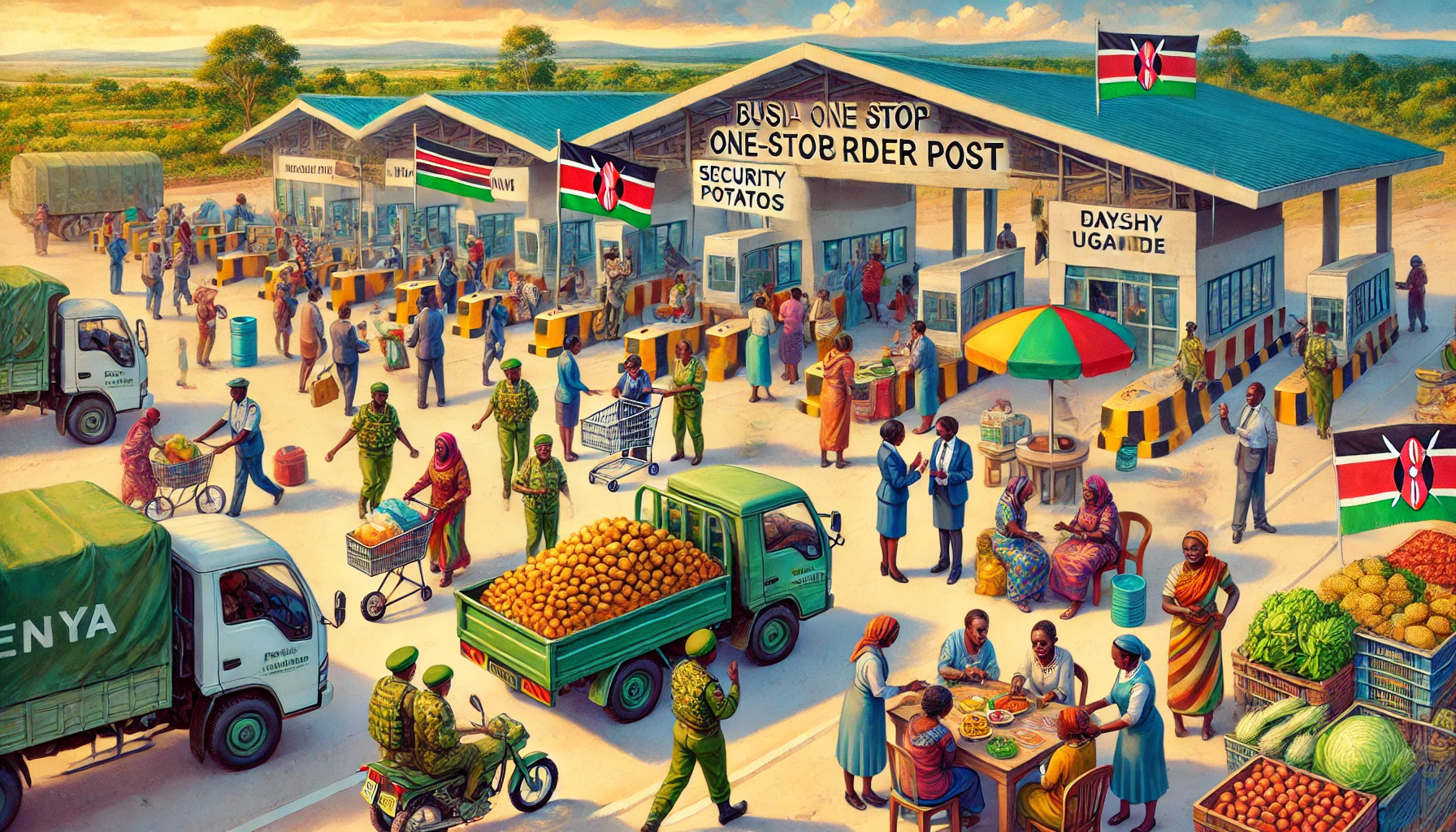Mano River Union Delegation Concludes Study Tour at Busia OSBP, Advancing Women's Economic Empowerment in Cross-Border Trade
Leading the African Development Bank delegation, Nelly Maina, Principal Gender Officer, emphasized the role of structured trade facilitation and targeted support in advancing women's economic empowerment.

- Country:
- Ivory Coast
A delegation from the Mano River Union (MRU) recently concluded a successful study tour of the ‘Busia One Stop Border Post’ (OSBP) between Kenya and Uganda, gaining invaluable insights into efficient cross-border trade systems that foster economic empowerment, particularly for women traders. The delegation included women traders and border officials from Liberia and Sierra Leone, accompanied by representatives from the African Development Bank (www.AfDB.org).
The Busia OSBP, one of East Africa’s busiest border crossings, manages the daily movement of over 3,000 people and 900 vehicles, significantly improving trade facilitation since its inception in 2018. The facility has revolutionized trade procedures between Kenya and Uganda, demonstrating the profound impact of streamlined border operations on trade efficiency and women’s participation in economic activities.
Key Insights from the Study Tour
Leading the African Development Bank delegation, Nelly Maina, Principal Gender Officer, emphasized the role of structured trade facilitation and targeted support in advancing women's economic empowerment. “The Busia OSBP highlights the importance of collaboration with government agencies and the provision of critical resources such as training, capacity building, infrastructure, and the development of inclusive policies that address women’s specific needs,” Maina stated.
The study tour formed part of the African Development Bank-funded Building Inclusive Business Ecosystems for Stabilization and Transformation (BI-BEST) project, which aims to empower 1,500 women traders in Liberia and Sierra Leone. This initiative focuses on enhancing their participation in cross-border value chains to foster resilient economic growth and social cohesion.
Engaging Key Stakeholders
During the tour, the MRU delegation engaged with Kenya’s Ministry of Investments, Trade and Industry, the National AfCFTA Committee, TradeMark Africa, Busia Border management authorities, and local women cross-border traders. These interactions provided firsthand accounts of how the OSBP has transformed trade by simplifying procedures and promoting safer trading environments.
Women traders from Kenya and Uganda shared their experiences, highlighting the tangible benefits of the OSBP. Mercy Mugo, a trader from Busia town, explained, "I buy Irish potatoes in Kenya and bring them to Uganda, then purchase maize in Uganda and return it to Kenya. With the OSBP, I am now a fully-fledged cross-border trader, enlightened and sensitized."
Another trader, Florence Atieno, emphasized the broader societal impact of supporting women in trade. “We believe that by addressing the critical needs of women in trade, we can positively impact the community and promote overall economic well-being.”
Transformational Lessons for West Africa
Delegates from Sierra Leone and Liberia found the experience particularly inspiring. Betty R. Kamara from Sierra Leone remarked, "I am impressed by how Kenyan women collaborate with security officials and manage their businesses while balancing childcare responsibilities." Similarly, Esther Tamba from Liberia stated, "I will meet with my women's association, Good Seeds, in Liberia to share the lessons learned from Kenyan women traders."
The study tour underscored the pivotal role of infrastructure and policy in fostering safer, more inclusive trade environments for women. For example, the Busia OSBP has established a daycare center to support women traders and local business owners, enabling them to focus on entrepreneurship while ensuring their children are in a safe and nurturing environment. Previously, many women had to carry their infants to markets, exposing them to risks such as child trafficking, accidents, and abuse. The daycare center now provides accessible, affordable childcare, further enabling women’s economic participation.
Enhanced Trade Procedures and Security Measures
The joint border management committee affirmed that the Busia OSBP has transformed cross-border trade. Prior to its establishment, traders faced long queues, complex bureaucratic hurdles, and heightened security risks. Women, in particular, lacked secure storage facilities and often depended on intermediaries to navigate the clearance process. Today, thanks to Simplified Trade Regimes (STRs), certificates of origin, and streamlined documentation, women can conduct their trade transactions independently and efficiently.
Additional measures, including a dedicated reporting desk, lactation rooms, and secure storage spaces, have significantly improved the trading experience for women. These facilities, coupled with continuous sensitization efforts by the Kenyan and Ugandan governments and private sector stakeholders, have empowered women traders with essential knowledge of their rights and available resources. Training sessions now equip traders with guidance on trade procedures, documentation requirements, and business development, ensuring a more inclusive trading environment.
Expanding Inclusive Business Ecosystems in West Africa
The MRU delegation left the study tour with a commitment to applying the lessons learned to West Africa’s cross-border trade landscape. “By implementing these insights within the MRU region, we aim to contribute to a more inclusive business ecosystem that supports women traders in Liberia and Sierra Leone,” stated Sierra Leone’s Betty Kamara.
Through strategic investments in border infrastructure, policy reforms, and women-focused trade facilitation programs, the MRU and the African Development Bank aspire to create a robust, inclusive trading system that empowers women, strengthens economic resilience, and fosters regional integration.










